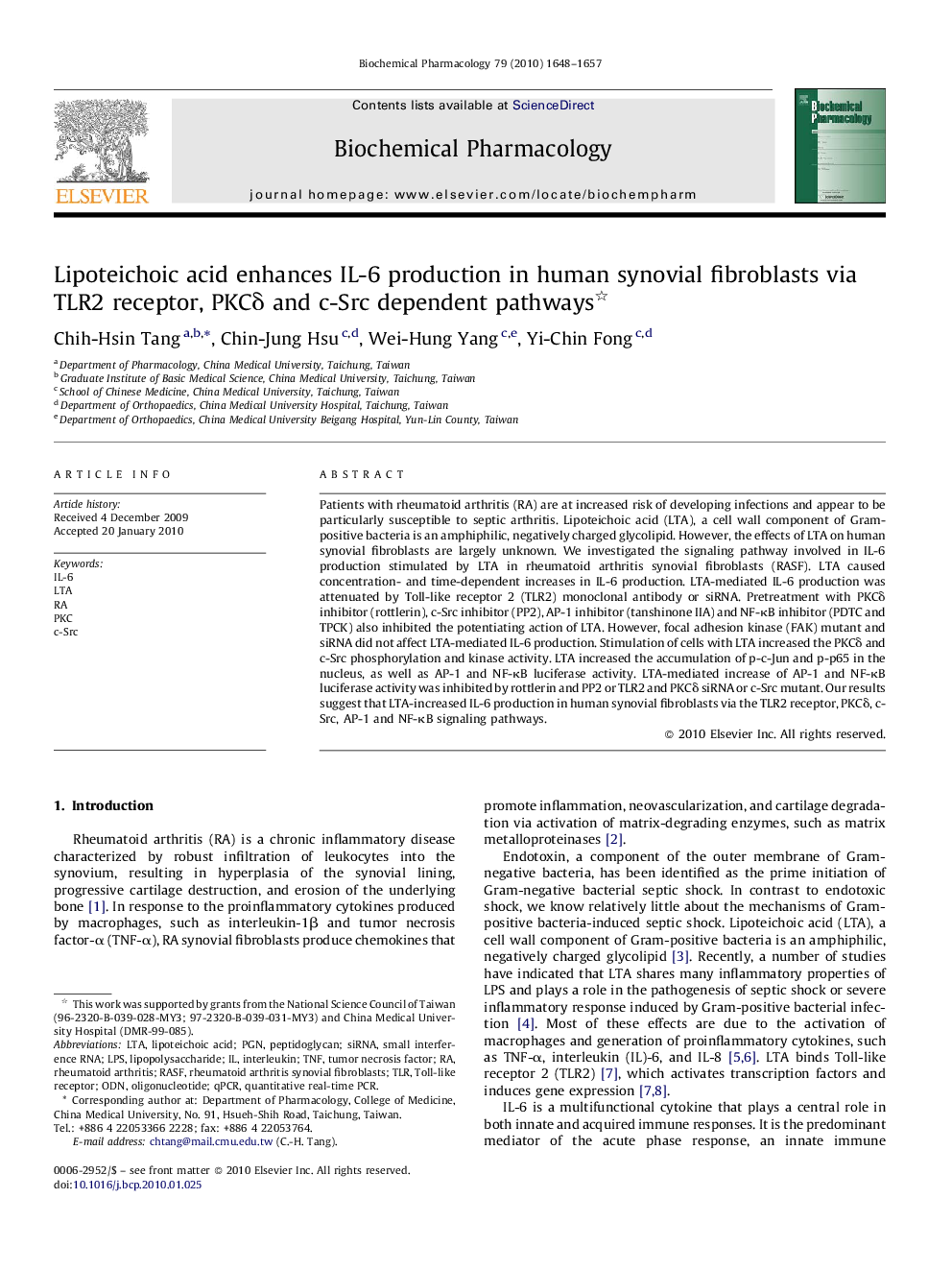| Article ID | Journal | Published Year | Pages | File Type |
|---|---|---|---|---|
| 2513330 | Biochemical Pharmacology | 2010 | 10 Pages |
Patients with rheumatoid arthritis (RA) are at increased risk of developing infections and appear to be particularly susceptible to septic arthritis. Lipoteichoic acid (LTA), a cell wall component of Gram-positive bacteria is an amphiphilic, negatively charged glycolipid. However, the effects of LTA on human synovial fibroblasts are largely unknown. We investigated the signaling pathway involved in IL-6 production stimulated by LTA in rheumatoid arthritis synovial fibroblasts (RASF). LTA caused concentration- and time-dependent increases in IL-6 production. LTA-mediated IL-6 production was attenuated by Toll-like receptor 2 (TLR2) monoclonal antibody or siRNA. Pretreatment with PKCδ inhibitor (rottlerin), c-Src inhibitor (PP2), AP-1 inhibitor (tanshinone IIA) and NF-κB inhibitor (PDTC and TPCK) also inhibited the potentiating action of LTA. However, focal adhesion kinase (FAK) mutant and siRNA did not affect LTA-mediated IL-6 production. Stimulation of cells with LTA increased the PKCδ and c-Src phosphorylation and kinase activity. LTA increased the accumulation of p-c-Jun and p-p65 in the nucleus, as well as AP-1 and NF-κB luciferase activity. LTA-mediated increase of AP-1 and NF-κB luciferase activity was inhibited by rottlerin and PP2 or TLR2 and PKCδ siRNA or c-Src mutant. Our results suggest that LTA-increased IL-6 production in human synovial fibroblasts via the TLR2 receptor, PKCδ, c-Src, AP-1 and NF-κB signaling pathways.
Graphical abstractFigure optionsDownload full-size imageDownload as PowerPoint slide
